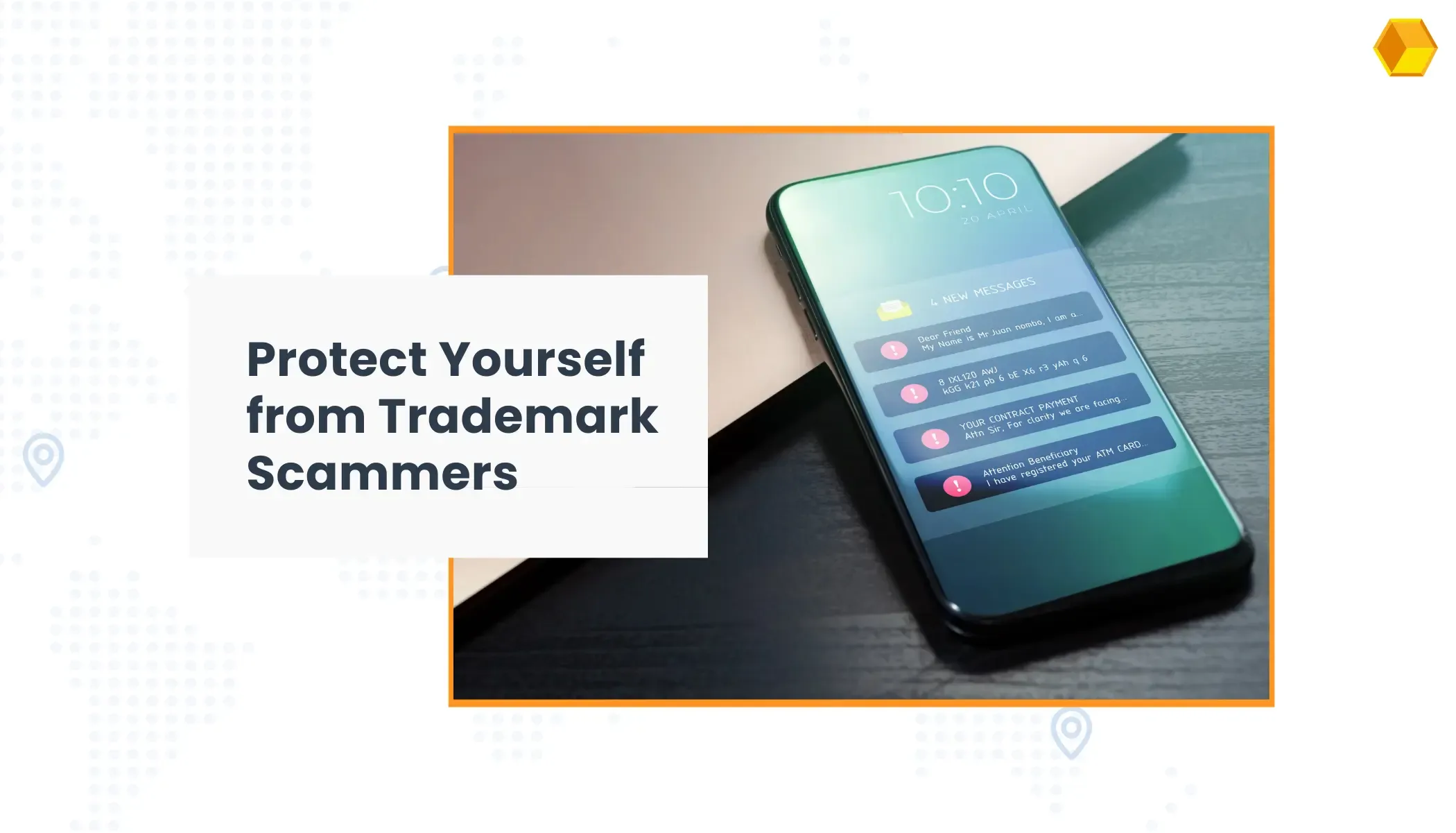
Guard Against Trademark Scams and Frauds
Trademarks go through a long registration process to obtain protection. Among other things, this process includes the examination and the publication of the trademark and its owner’s details. During the publication, anyone can see if your trademark application infringes their previous application or registration of trademark rights. Therefore if any third party finds that your trademark infringes their rights, they can file an opposition to it.
Given that the owner’s name and mailing address is available to the public, an opportunity for trademark scammers opens. The publication of these details is legally required in almost every trademark registrar around the world, and therefore cannot be avoided. Trademark scammers take advantage using this information to contact trademark owners. They do this by posing as official intellectual property organizations or other trademark agents.
The trademark fraud begins when scammers contact trademark owners, either via email or mail, charging any given amount of money. They may falsely state that a payment is required to finish the trademark’s registration procedure. You have to be careful with any false trademark invoices received in your place of business or email address.
Some common trademark scams
There are several trademark solicitation methods used by trademark scammers that lead to these false trademark charges. Below are some cases that you should watch out for:
Posing as a Trademark Compliance Office
This scam is very well known in the trademark world, most notably known is the WTP trademark publication scam. The WTP is an organization that sends out a publication letter posing as a private patent and trademark office. In this letter they offer to publish your trademark in their private registry for an amount of money.
Although technically legal, the publication of your trade mark in their private database does not enforce your rights in any way. The letters sent by this organization look very official in nature making several novice trademark owners fall to this trademark fraud. They pray to convince trademark owners that they are an official trademark office.
Please be careful of the wtp trademark scam and other patent and trademark bureau scams.
Patent and Trademark office Scams
Several scammers send false invoices intending to pose as an official patent and trademark office. Many, for example, pose as the United States Patent and Trademark Office based in Alexandria, Virginia. These invoices use official trademark law terms and names similar to those of government agencies, which confuse new trademark owners. This is commonly referred to as the US Trademark Compliance Office Scam.
These letters may include details familiar to you, such as the trademark’s list of goods and services. This is because this information is available to the public.
The correct information provided gives users a certain level of trust that these false organizations are valid. Note that these patent and trademark office scams will probably not have the domain uspto.gov included in the letters.
Unfortunately several users fall victim to this kind of trademark scam. You have to be weary of these fake USPTO solicitations.
Trademark misleading invoices
Trademark invoice scams is a very common practice which can confuse trademark owners. These invoices may look official, and they usually request a payment in order to conclude the registration process. For example, stating that you have to pay to obtain the registration certificate.
These invoices generally come with a tight deadline threatening to cancel the trademark if it is not met. Which increases the owner’s sense of urgency and therefore quickly proceeds to pay to maintain their trademark’s validity.
Trademark Related services or Trademark renewal Scams
You may see trademark scams even after your trademark has been registered. After registration trademarks have to be renewed, in most countries renewals have to be done every 10 years. This opens an opportunity for trademark scammers to send false trademark invoices to falsely claim that they will renew your trademark.
Other scammers send false trademark charges after registration that are unnecessary in some countries, but required by others. For example trademarks in the United States require filing a declaration of use between the 5th and 6th year of registration. In several countries this step does not exist, however, some trademark scammers take the opportunity to ask for false attorney fees. We have seen this most notably happen in cases of trademarks registered in Mexico.
What to do if you are a victim of trademark fraud?
Most of these organizations operate overseas, which makes any type of actions difficult to enforce. It is still virtually impossible to get your money back when making a payment to one of these fraudulent organizations. False trademark invoices usually request payment via cheque or international bank transfers. This makes it impossible to dispute payments or request a chargeback.
All notifications and charges of fees should be received from your trademark agent, if you hired one. Anything received from another source should be considered an attempt of trademark scam. You should always consult with your trademark agent to be certain.
At iGERENT we are happy to help anyone in checking the validity of any invoice or communication they have received. Contact us if you believe you have received an attempt of trademark fraud or trademark scam.